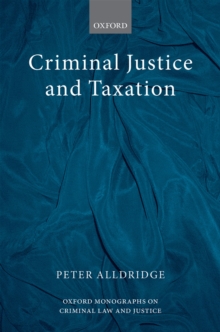
Rethinking Imprisonment Hardback
by Richard L. (Professor, Department of Philosophy and Religion, James Madison University, Virg Lippke
Part of the Oxford Monographs on Criminal Law and Justice series
Hardback
- Information
Description
Drawing on philosophical arguments, criminological evidence, and the legal literature on prisoners' rights, Rethinking Imprisonment defends a normative theory of imprisonment.
Such a theory provides an account of the justified conditions of prison confinement - the restrictions and deprivations that may be legitimately imposed on serious offenders in the name of punishment.
The theory of legal punishment upon which this account builds combines retributive and crime reduction elements, with the former accorded priority on both moral and epistemic grounds.
Contrary to its formidable reputation, retributivism is shown to place important and substantial limits on the character of imprisonment, its appropriate use, and duration.
Much of the contemporary use of imprisonment as a legal sanction is arguably unjustified on all three counts. Rethinking Imprisonment urges the adoption of prison conditions at or near the 'minimum conditions of confinement' which severely curtail the freedom of movement, freedom of association, and privacy of prisoners, yet are still consistent with ensuring the basic physical and psychological welfare of prisoners, and provide them with access to paid labor, visitation, entertainment, recreation, and retained civic and political rights.
This book argues firstly that the punishment of serious offenders generally requires no more than the imposition of 'minimum conditions of confinement' and secondly that moral constraints on punishment derived from retributivism in conjunction with the available evidence about the prison regimes most likely to reduce crime point towards more humane and less restrictive prisons.
Information
-
Out of StockMore expected soonContact us for further information
- Format:Hardback
- Pages:294 pages, 1 line drawing
- Publisher:Oxford University Press
- Publication Date:25/01/2007
- Category:
- ISBN:9780199209125
Information
-
Out of StockMore expected soonContact us for further information
- Format:Hardback
- Pages:294 pages, 1 line drawing
- Publisher:Oxford University Press
- Publication Date:25/01/2007
- Category:
- ISBN:9780199209125



